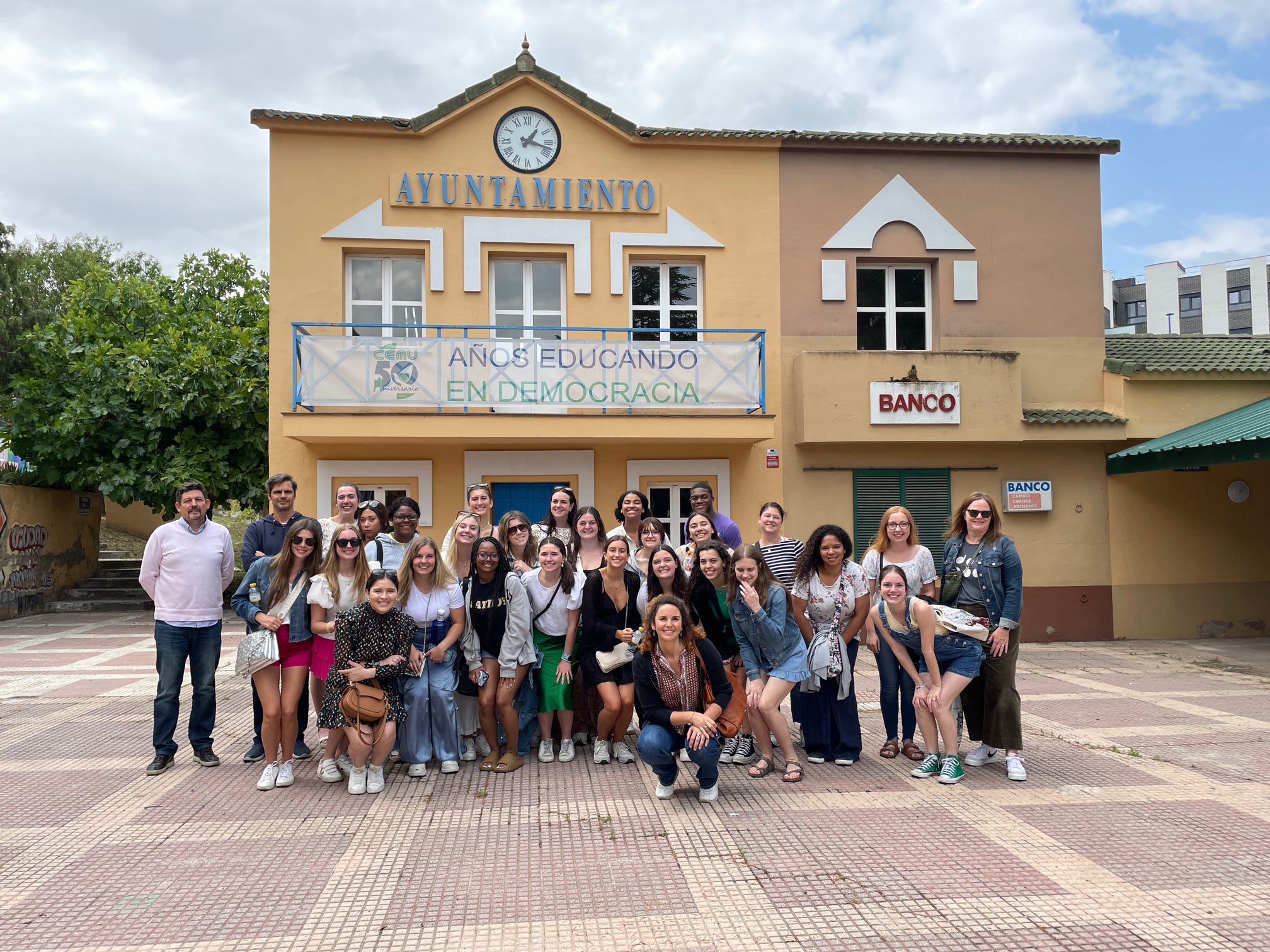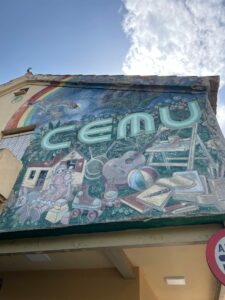Youth & Community: Supporting Child Development in Madrid

During the summer, students from Texas Christian University came to Madrid to participate in a program on Community Health & Child Advocacy in Spain. The program was developed in partnership with faculty from the Karyn Purvis Institute of Child Development at TCU, a research institution specialized in helping children suffering from the effects of early trauma, abuse and/or neglect. In addition to coursework with TCU faculty Casey Call and Sarah Cronin, the program involved several topical study visits throughout Madrid. Through these visits, students explored how Spanish history and culture affect the way in which the local society approaches childcare.
One of these visits was to the Madrid location of CiudadEscuela Muchachos (CEMU). Based on the U.S. model of Boys’ Town, CEMU is a community for minors from difficult social backgrounds. Founded by “Tio” Alberto Muñiz Sánchez in 1970, CEMU aims at integrating these young citizens into the Spanish society. Jaime Gomez, local Education Manager, led the group through the community’s facilities, while describing the educational philosophy behind this project of social integration. The center of the CiudadEscuela is the school, which provides both coursework and professional training for all. There is also a dormitory, as many of the minors in the community are housed onsite. To support their needs, some staff members are available all day long.

The school is surrounded by additional recreational facilities, such as a soccer field and a basketball court, and a space for arts and crafts. The list goes on, as—true to its name—the Ciudad is organized like a proper small town, with its own post office, church and meditation space, a small amphitheater, and a town hall. The latter is crucial, since CEMU is organized as a self-governing democratic community. All children have the right to speak in the local assembly and each year they elect a town mayor and councilors. The philosophy of CEMU is to support democratic participation and community life as means to instill in these minors a sense of personal responsibility, helping them become critically engaged citizens.
Through this visit, TCU students examined a unique approach to childcare and explored how this model of community operates in the context of Spain’s contemporary society.
Accent has extensive experience designing experiential learning activities that complement and build on the learning objectives of faculty-directed courses. Please reach out to Accent’s Program Development team at development@accentglobal.com if you are interested in discussing these ideas for your current or future study abroad program.